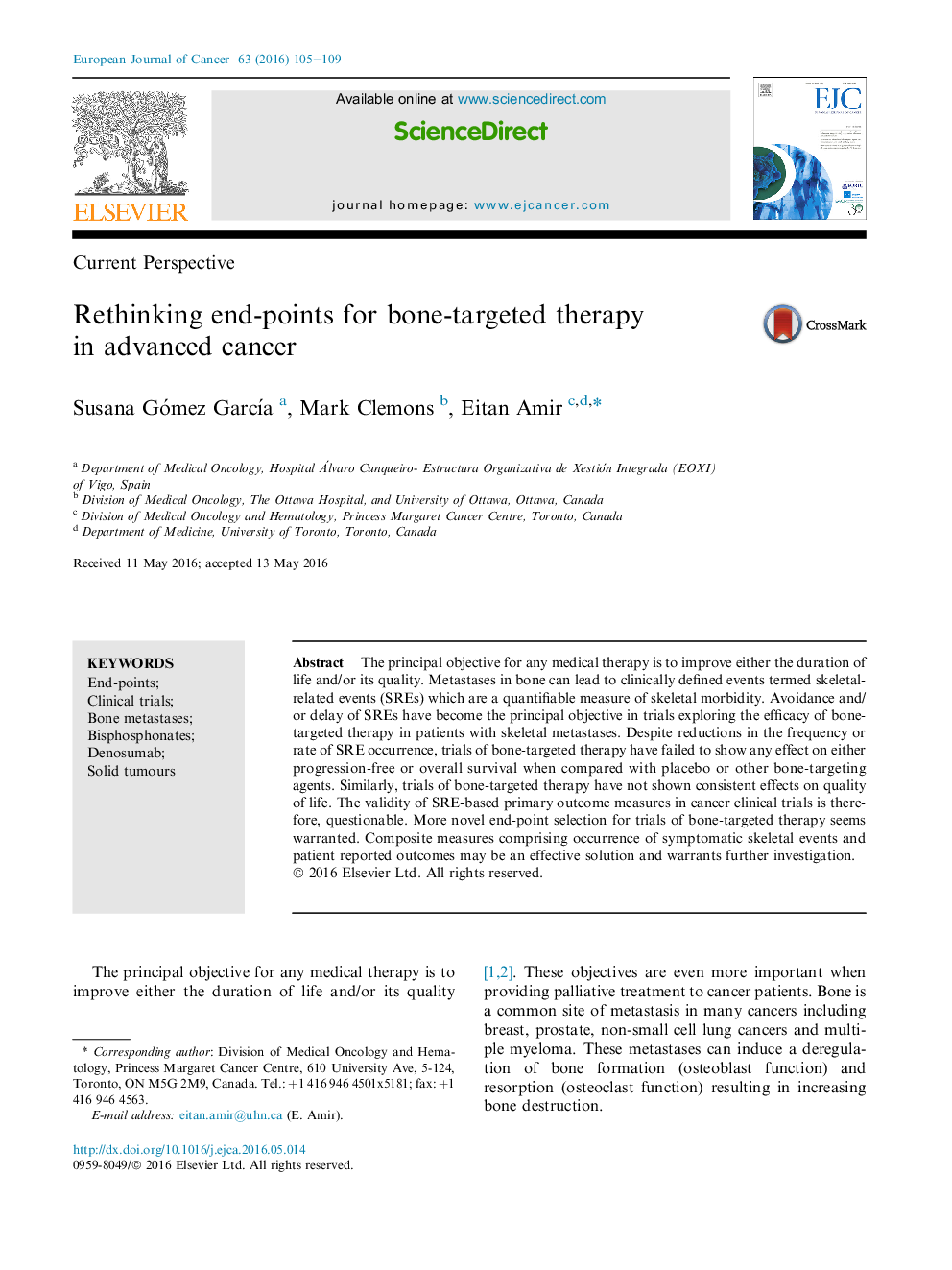| Article ID | Journal | Published Year | Pages | File Type |
|---|---|---|---|---|
| 8441092 | European Journal of Cancer | 2016 | 5 Pages |
Abstract
The principal objective for any medical therapy is to improve either the duration of life and/or its quality. Metastases in bone can lead to clinically defined events termed skeletal-related events (SREs) which are a quantifiable measure of skeletal morbidity. Avoidance and/or delay of SREs have become the principal objective in trials exploring the efficacy of bone-targeted therapy in patients with skeletal metastases. Despite reductions in the frequency or rate of SRE occurrence, trials of bone-targeted therapy have failed to show any effect on either progression-free or overall survival when compared with placebo or other bone-targeting agents. Similarly, trials of bone-targeted therapy have not shown consistent effects on quality of life. The validity of SRE-based primary outcome measures in cancer clinical trials is therefore, questionable. More novel end-point selection for trials of bone-targeted therapy seems warranted. Composite measures comprising occurrence of symptomatic skeletal events and patient reported outcomes may be an effective solution and warrants further investigation.
Related Topics
Life Sciences
Biochemistry, Genetics and Molecular Biology
Cancer Research
Authors
Susana Gómez GarcÃa, Mark Clemons, Eitan Amir,
